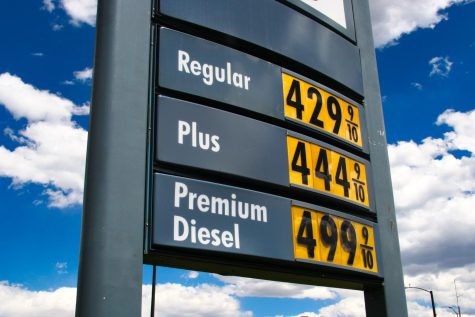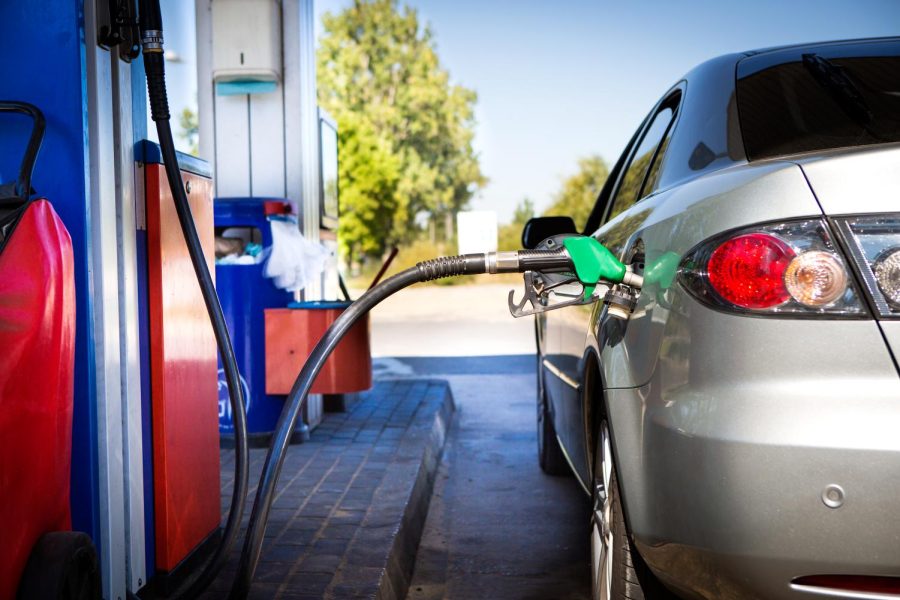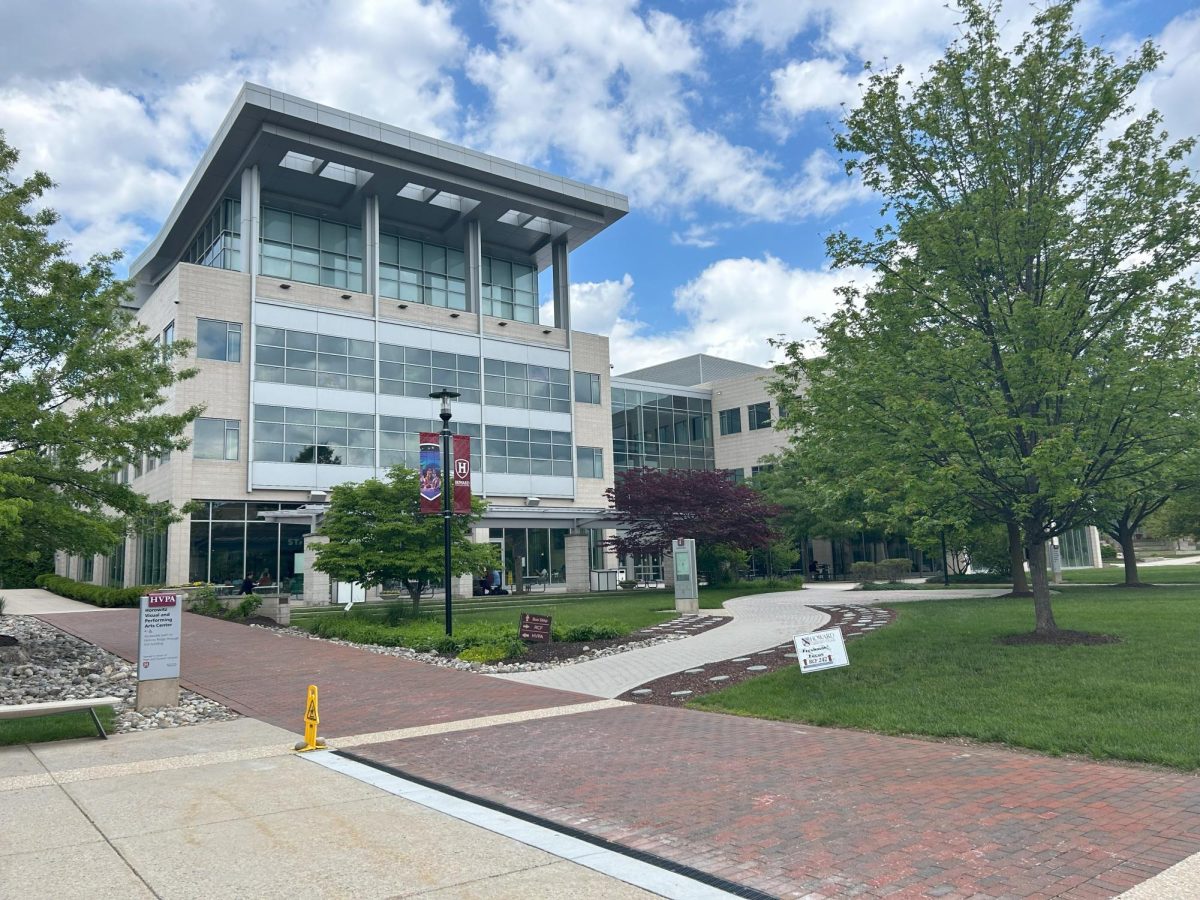Maryland’s Fluctuating Gas Prices – How Do Students and Staff Cope?
Record-high gas prices complicate transportation methods for HCC community members
Marylanders have been spending more money at the gas pump since the month of statewide tax-free gas ended in April.
June 2, 2022
“I’m possibly going to bike to college.”
My parents looked at me like I had grown a third head. “You haven’t ridden your bike in a long time,” they responded, “and it’s more difficult with a heavy backpack, let alone the fact that you’ve never driven your bike on busy roads before.”
Suddenly this idea sounded, let’s just say, less than ideal. “But it would save on gas!” I exclaimed.
As many of you have probably experienced over the past two months, gas prices in Maryland have risen more than ever. How are students and staff reacting to the abnormally high gas prices, and how have the prices impacted their commute to and from HCC?
Reactions to Gas Price Spikes and the Reasons Behind Them
An anonymous engineering major at HCC said it’s “unfortunate and sad” that people have to “waste money on extra gas.” Additionally, general studies major Jonathan Killoran stated that the rising gas prices have affected everyone and are “more drastic than anything [I’ve] ever seen.”
An anonymous professor who lived through the ’70s oil embargo exclaimed that “$4 or more [per gallon] makes you think.” She also correctly stated, however, that Maryland is more in the middle when it comes to average gas prices in the United States. According to AAA, as of June 2 Maryland’s average gas price of $4.63 is slightly lower than the national average of $4.72.
Are these gas price spikes tied solely to Russia’s attack on Ukraine? Well, it’s complicated.
The anonymous student argued that the gas price increase is partly due to company greed and profits, not solely the war in Ukraine. The anonymous professor was not sure that the $1+ increase was completely linked to Russia but suggested that Russia is a contributing factor nonetheless.
According to The New York Times, the sanctions imposed on Russia as a result of its conflict with Ukraine have been driving gas prices up. The sanctions against using Russian oil increase the overall demand for oil, which results in higher oil and gas prices.
There are other potential reasons for the spike in gas prices, as well, such as a lack of workers to transport the gas and run the gas stations.
Reactions to the Month of Tax-Free Gas in Maryland
Feelings about the gas tax lift were generally positive, as Killoran stated that it was a “really good thing,” while the anonymous student agreed that tax-free gas helped lower and middle-income people who depend on gas to get around. However, there were concerns about the harmful impacts of the tax-free gas month.

The anonymous student was interested in knowing what the tax money would have been going toward — possibly a useful government program or something else beneficial. The anonymous professor understood that the tax lift had to be temporary, but believed reducing the tax for longer instead of eliminating it for a short time might have been more helpful.
Since the state gas tax went back into effect on April 16, how have students and staff been getting to class without spending a fortune on gas?
Alternate Methods of Transportation to “Get There from Here”
The anonymous student has an unconventional method of transportation he’s been using since even before the gas prices increased: an electric moped.
It can be difficult to drive far, especially when pulling an attached trailer, but his moped usually gets him where he needs to go. Ultimately, the changing gas prices haven’t significantly impacted him since he can charge the moped up at home. He has been using his moped through the gas price spikes and will continue to use it.
However, electric cars, mopeds and motorcycles are expensive and unique forms of transportation, meaning most students and staff at HCC need a different alternative.
Killoran has been driving a regular vehicle to campus since he lives half an hour away. He hasn’t changed his transportation method in response to the gas price increase, since driving is the easiest way to get to campus. He admitted that “carpooling would be nice if I had a regular schedule.”
Although carpooling doesn’t work for everyone, it is a common and effective way to save gas money. My family often does this when we’re going to the same place and plan to leave at the same time. If you live only a few minutes from campus, however, walking or biking might be preferable when the weather is nice.
Like Killoran, the anonymous professor has been driving a regular vehicle to campus since it is most convenient for her. She tries to complete errands in as few trips as possible and has her car in the “eco” setting, but is not changing her spending habits significantly.
So, What Does it All Mean?
I was honestly surprised that no one has majorly changed their method of transportation. Killoran’s thoughts about carpooling especially intrigued me. It seems like everyone’s schedules have become more individualized due to COVID, which makes carpooling harder to do.
Even set schedules like bus routes may not be helpful with the individualization of students’ and staff’s schedules. Unless you live close to campus, biking seems a bit too hazardous (and requires experience) and — like walking — takes longer, especially with a heavy backpack or laptop.
Ultimately, it seems like higher gas prices amount to a catch-22 inconvenience for students and staff — it stings to pay so much for gas, but it’s more inconvenient to majorly rearrange your life just to pay a bit less for gas. Even The New York Times article concluded that “for many working people, it’s equivalent to a tax.”
So, for me? I’ll be skipping the bike ride for now and will continue to drive my car on “eco” (and carpool sometimes) instead.







